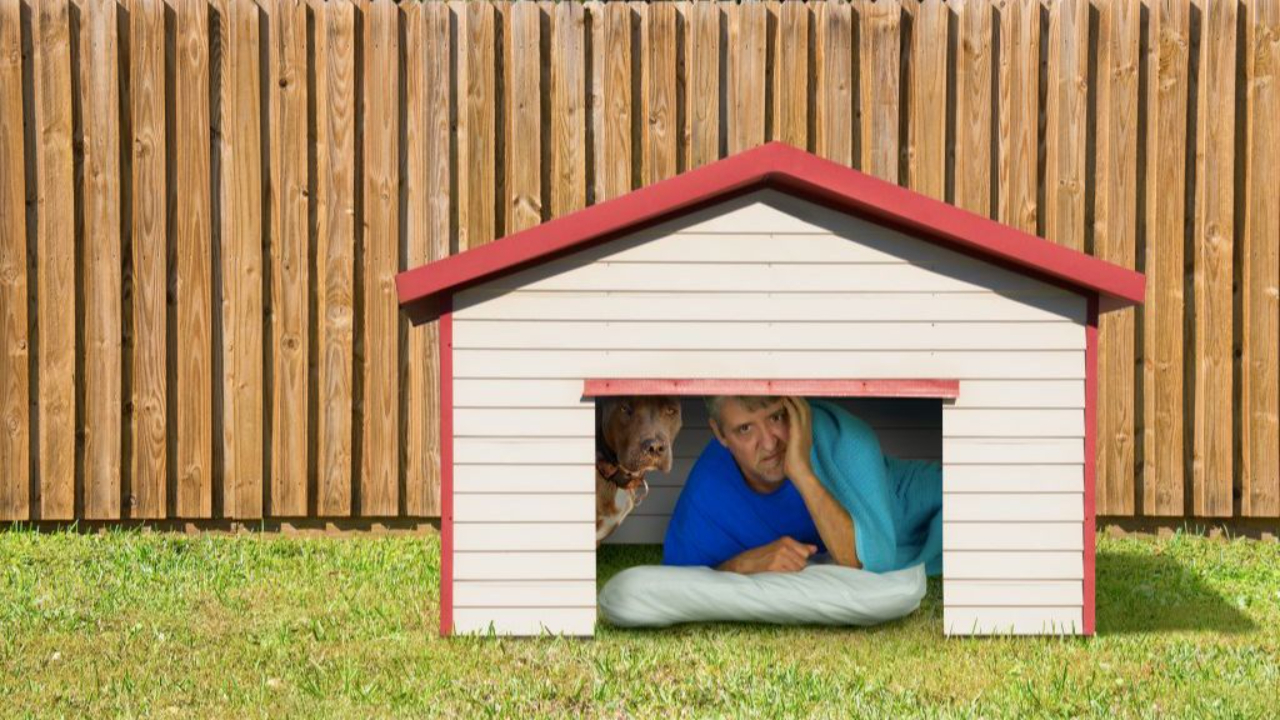Parent-child dynamics in couple relationships – who’s in the doghouse?

Jeremy and Min have been together for 7 years and have 2 young children. When he returns home from work, Jeremy always does chores for 2 or 3 hours. He feels that Min doesn’t see the vast array of tasks that they need to do to keep the household running smoothly.
He feels overwhelmed and can’t understand why Min never seems bothered by this. He can’t believe she can live with so much mess and chaos. It does his head in, and he becomes most critical when Min sits on the sofa flicking through her phone when the kids are in bed.
He tells himself that it’s like having a third child. Sometimes he’s surprised by his anger, and he’s concerned how much it is seeping into other areas of their relationship.
I’ve seen a gazillion couples where a partner complains, comments, and often becomes critical when their partner doesn’t live up to their expectations. They’re often shocked by their partner’s inability to tidy, clean, or parent in a way that seems ‘obvious’ to them. They end up exasperated and frustrated with them.
The problem is that it doesn’t stop with exasperation and frustration. Overtime, they start to see their partner as a child who can’t operate properly in the adult world. When partners view their partner this way, they often start to treat them as a child in other areas, not trusting their adult capacities.
This is extremely unattractive and unpleasant for both partners. These relationships typically become highly conflictual as no partner wants to continuously be sent to the doghouse. They’ll often ark up when criticised or corrected or experience their partner’s attempts to control them. This may take the form of becoming verbally defensive, justifying behaviours, being secretive, or retreating into a world of their own where their partner can’t reach them – into themselves.
We all experience the world differently as we have different minds, and this plays out in our day to day lives at home within our relationships. Couples with parent-child dynamics, like Jeremy and Min, have difficulty navigating the massive gap between their expectations and priorities.
For example, Min has spent all day attending to the needs of the kids. She’s fed them in a timely manner, attended to their nappies and scrapes, she’s played music and dress ups. She’s read them books and attended to their tears. She understands Jeremy wants a more organised home, but her priority is to have healthy happy children.
Min focuses on them solely until they go to bed, by which time she is completely spent and needs some downtime to just be quiet and in her own mind. She knows she’s doing a pretty good job. She feels she’s earned some time to put her feet up and have some time to herself.
As you can see, from their own perspectives, they’re both right. The house needs more attention and Min deserves to put her feet up. But Min and Jeremy need to be careful, because remaining in self-righteous positions whilst not finding a solution will only entrench negative mindsets about each other.
Jeremy will repeatedly try to push Min into the doghouse telling himself, and her, that she is self-centred and only cares about the kids. She will entrench her version elaborating how controlling, aggressive, and horrible Jeremy is. Where their narratives go, the behaviour will follow.
What they need is a way of moving this situation from either/or – Jeremy’s way or Min’s way – They need to find a new position where both positions are kept in mind. This is an ‘and position’ so they don’t cancel each other out.
They may decide to get some outside assistance with the household or with the children. Jeremy may come home earlier from work one day a week to relieve Min so she can organise things with more energy.
Couples need to keep an ‘and position’ and keep binary positions (like either/or) at bay.
A co-parenting relationship is one where parents think together about the child’s wellbeing and make joint decisions that support the child’s emotional, physical, and practical needs. A co-parenting relationship is not about your ex-partner – it’s about putting your child’s best interests first and loving them above your own hurt, sadness or resentment. A co-parenting relationship is one of the most important ingredients for children to flourish and develop well post separation.


